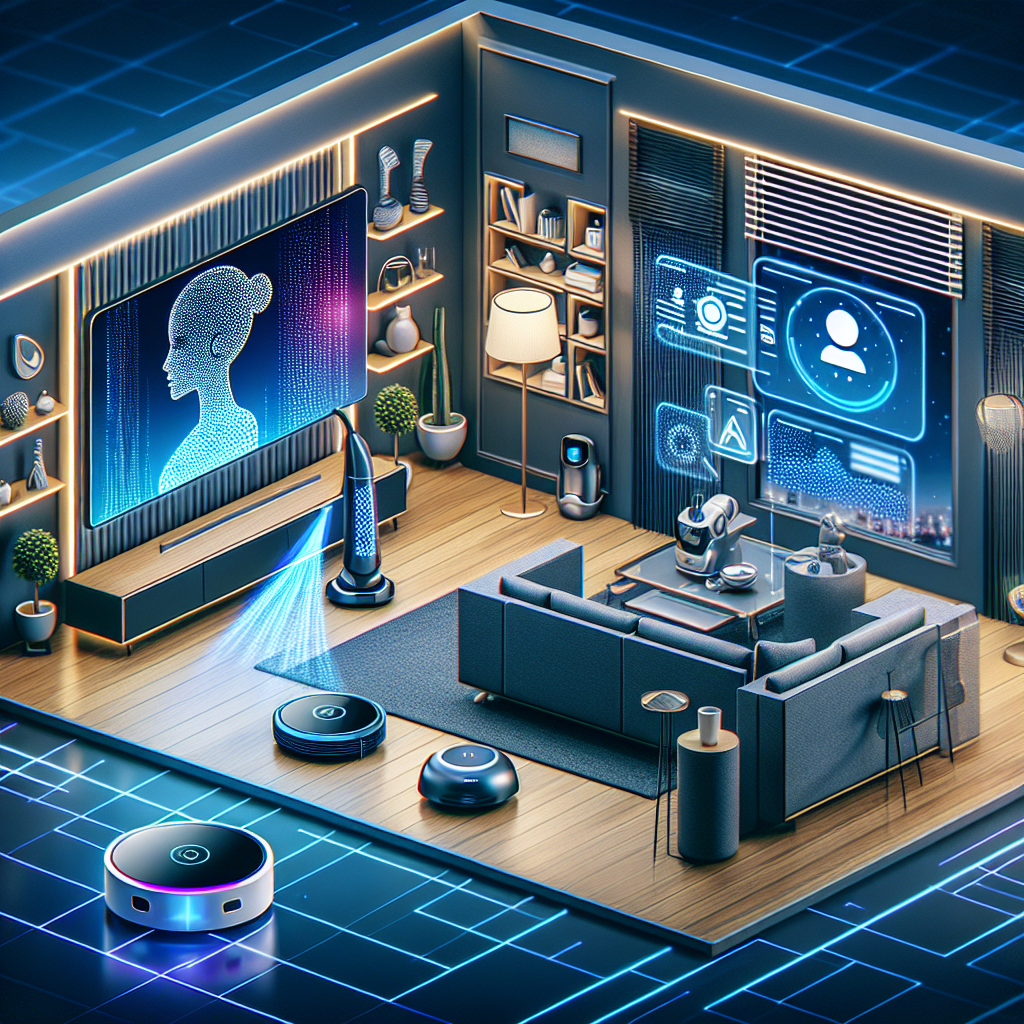In recent years, smart home automation has become increasingly popular as people seek ways to make their homes more efficient, convenient, and secure. One of the key drivers of this trend is the advancement of artificial intelligence (AI) technology, which has enabled the development of intelligent solutions that can automate various tasks in the home. From controlling lighting and temperature to managing security systems and appliances, AI-driven solutions are transforming the way we interact with our living spaces. In this article, we will explore some of the key AI-driven solutions for smart home automation and how they are revolutionizing the way we live.
AI-driven Solutions for Smart Home Automation
1. Voice Assistants: Voice assistants like Amazon’s Alexa, Google Assistant, and Apple’s Siri have become ubiquitous in smart homes, allowing users to control various devices and services with simple voice commands. These assistants use AI algorithms to understand and respond to natural language queries, making it easy for users to interact with their smart home devices without the need for a physical interface. Users can ask their voice assistant to turn on lights, adjust thermostats, play music, and much more, creating a seamless and hands-free experience.
2. Smart Thermostats: Smart thermostats like Nest and Ecobee use AI algorithms to learn users’ preferences and adjust temperature settings accordingly. These devices can analyze patterns in users’ behavior, such as when they are home or away, to optimize energy usage and reduce heating and cooling costs. By using AI-driven algorithms, smart thermostats can create personalized schedules and adapt to changing conditions in real-time, ensuring maximum comfort and efficiency.
3. Home Security Systems: AI-driven home security systems use advanced computer vision and machine learning algorithms to detect and respond to potential threats in real-time. These systems can analyze video feeds from security cameras to identify unusual or suspicious activities, such as motion detection or unrecognized individuals. In case of a security breach, the system can alert the homeowner and even contact emergency services if necessary. By leveraging AI technology, home security systems can provide a higher level of protection and peace of mind for homeowners.
4. Smart Lighting: AI-driven smart lighting systems can adjust brightness, color, and schedule based on users’ preferences and behavior. These systems can automatically turn on or off lights in different rooms, create lighting scenes for different activities, and even mimic natural sunlight patterns to enhance mood and productivity. By using AI algorithms, smart lighting systems can learn users’ habits and adapt to changing conditions, creating a more comfortable and energy-efficient home environment.
5. Appliance Control: AI-powered smart plugs and switches allow users to remotely control and automate various appliances and devices in their homes. These devices can be programmed to turn on or off at specific times, monitor energy usage, and even learn users’ habits to optimize performance. By using AI algorithms, smart plugs and switches can help users save energy, reduce utility bills, and enhance the overall efficiency of their home appliances.
FAQs
Q: Are AI-driven solutions for smart home automation secure?
A: Yes, AI-driven solutions for smart home automation are designed with security in mind. These systems use advanced encryption protocols, secure communication channels, and authentication mechanisms to protect users’ data and privacy. However, it is essential for users to follow best practices, such as using strong passwords, updating firmware regularly, and monitoring device activity, to ensure the security of their smart home devices.
Q: Can AI-driven solutions for smart home automation be integrated with existing devices?
A: Yes, many AI-driven solutions for smart home automation are designed to be compatible with a wide range of devices and platforms. Users can typically integrate these solutions with their existing smart home devices, such as thermostats, lighting systems, security cameras, and appliances, to create a seamless and interconnected home automation ecosystem.
Q: How can AI-driven solutions for smart home automation benefit users?
A: AI-driven solutions for smart home automation offer several benefits to users, including increased convenience, energy efficiency, security, and comfort. These solutions can automate routine tasks, optimize energy usage, enhance home security, and create a personalized and responsive living environment. By leveraging AI technology, smart home automation solutions can improve the quality of life for users and make their homes smarter and more efficient.
In conclusion, AI-driven solutions for smart home automation are revolutionizing the way we interact with our living spaces. From voice assistants and smart thermostats to home security systems and appliance control, AI technology is enabling a new level of convenience, efficiency, and security in our homes. By leveraging AI algorithms, these solutions can automate tasks, optimize energy usage, enhance security, and create a personalized and responsive living environment. With the continued advancement of AI technology, the future of smart home automation looks bright, offering users endless possibilities for creating smarter, more connected, and more efficient homes.

